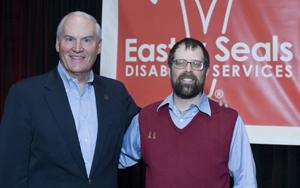Call me a dork, but I love autism conferences
by Matt McAlear
Call me a dork, but one of the favorite parts of my work is going to trainings and conferences on autism treatment. We are very lucky to have really exciting research happening within our university system here in California — two conferences I’ve been to lately highlighted pioneering treatments in the field.
The first was through the U.C. Davis M.I.N.D. Institute — it highlighted the Early Start Denver Model (ESDM). Next was training on Pivotal Response Training (PRT) at U.C. Santa Barbara’s Koegel Autism Center.
I’m a big proponent of “using what works” for autism treatment, so ESDM and PRT have always interested me. Both fuse traditional Applied Behavior Analysis principles with naturalistic, developmental approaches, and both address the following “pivotal areas:
- natural learning opportunities
- motivation
- child choices
- initiations
- self regulation
Both of these approaches just make sense — don’t we all respond better when we are calm, motivated and are given a choice? In a field ripe with controversy over what works and what doesn’t, it is refreshing to see models that not only focus on the individuals being served, but also acknowledge the fact that there is no single effective treatment for all individuals.
Our Early Intervention Autism Project at Easter Seals Bay Area and similar Easter Seals programs across the country are always looking for empirically-based, innovative programs. PRT and ESDM are both rich with empirical evidence and are on the cutting edge of research. With best practice becoming common practice, the future of autism treatment looks bright.







